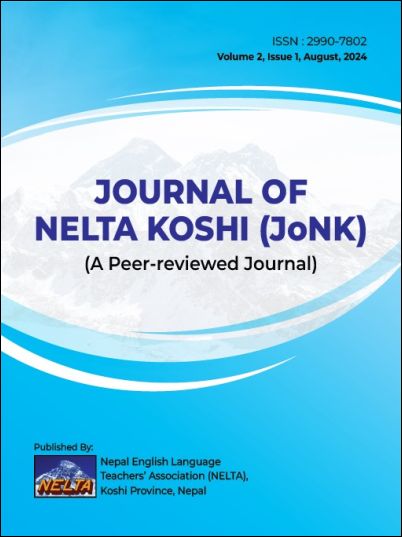ELT in Mother Tongue Dominant Schools in Nepal
DOI:
https://doi.org/10.3126/jonk.v2i1.69654Keywords:
ELT in L1 dominant schools, teaching practices, Nepali primary schools, ELT in a multilingual classAbstract
English language teaching (ELT) in mother tongue (MT)/first language (L1) dominant primary schools in Nepal, a multilingual country, without the use of L1 may pose difficulties to both teachers and students. Overemphasis on only-English/Nepali teaching may create language phobias among students at the early stages of their lives and can force some vernacular languages and cultures to die. Hence, MT-based schools may help to preserve the local languages and cultures by going against the trend of teaching only English or Nepali. This qualitative study explored three English teachers’ teaching experiences in three Nepal Bhasa dominant primary schools at Kathmandu valley. Guided by the interpretive paradigm, the teachers’ perceptions and teaching experiences were captured through interviews and classroom observations. Findings show that teaching English in a multilingual class is challenging because teachers need to know and apply their students’ mother tongue(s) to teach effectively. The use of L1 reduces learners’ dropouts, builds a language learning foundation and using only English/Nepali disregarding L1 may kill indigenous culture. This study is beneficial for not only the teachers, but also the policymakers, curriculum developers, and other stakeholders to get insights for providing a rightful space to the use of L1 in ELT classrooms.
Downloads
Downloads
Published
How to Cite
Issue
Section
License
Copyright (c) 2024 NELTA Koshi Province, Nepal

This work is licensed under a Creative Commons Attribution-NonCommercial 4.0 International License.
This license enables reusers to distribute, remix, adapt, and build upon the material in any medium or format for noncommercial purposes only, and only so long as attribution is given to the creator.




